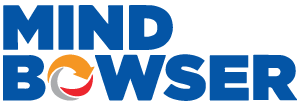Automation in healthcare is transforming the industry through robotic process automation, machine learning algorithms, and physical robots. These advancements impact a wide range of roles, from frontline healthcare workers to administrative staff and executives.
While automation has revolutionized many sectors, the healthcare automation market, estimated at USD 34.50 billion in 2022, is expected to reach USD 80.28 billion by 2032.
The adoption of automation in healthcare has been slower than in other sectors, partly due to providers' frequent misuse of the term. Manual, paper-based processes remain prevalent in many healthcare centers, significantly hampering efficiency.
Relying on outdated methods can lead to critical errors and compliance risks. Manual operations waste valuable time and resources, preventing healthcare providers from focusing on patient care.
The inefficiencies of these traditional processes underscore the growing importance of adopting automation in healthcare to improve accuracy, streamline workflows, and ensure better resource use. Automation helps healthcare providers reduce errors, improve compliance, and improve patient outcomes.
Let’s understand more about how businesses can benefit from healthcare automation.
➡️Appointment Scheduling and Reminders
Automated appointment scheduling is essential due to the challenges of traditional methods like errors, double bookings, missed appointments, and resource drain. According to McKinsey, 60% of consumers expect to schedule or change appointments online. This technology revolutionizes business management by ensuring efficient, error-free, and customer-centric scheduling, allowing healthcare organizations to focus on delivering exceptional service.
Automated scheduling and reminders make life easier for both you and your patients. Patients can book appointments 24/7 and get friendly nudges beforehand, ensuring they get the care they need on time.
No more juggling schedules—these systems streamline appointment slots, minimize missed appointments, and optimize how you use your precious staff and facilities. Plus, it can reduce human error by detecting scheduling errors, ensuring exact appointment timing, and eliminating multiple bookings.
➡️GenAI for Automation
Generative AI (GenAI) for automation brings significant advantages to healthcare professionals. It streamlines repetitive tasks such as documentation and data processing, improving accuracy and efficiency.
By automating these common tasks, GenAI assists healthcare businesses in lowering operating costs and better-allocating resources. It also ensures that procedures are followed consistently, simplifying regulatory compliance.
GenAI seamlessly integrates with existing systems to automate workflows, reducing manual efforts and speeding up operations. Automated processes guarantee precise data capture, storage, and management, providing trustworthy data for analysis.
Additionally, GenAI allows healthcare professionals to focus on more critical tasks, enhancing productivity and job satisfaction. Its scalable nature can handle increasing volumes of tasks without additional staffing, making it suitable for expanding healthcare organizations.

Free Whitepaper on Super Smart AI: Game Changer for Healthcare
Key Insights You Will Gain Through This Whitepaper :
- AI in Diagnostics and Treatment
- Operational Efficiency
- Patient Engagement
- Data Management and Security
- Our Expertise and Strategies
➡️Business Process Automation (BPA)
Business Process Automation (BPA) offers significant benefits to healthcare professionals. By automating repetitive administrative tasks such as billing, scheduling, and data entry, BPA improves accuracy and efficiency.
This automation helps healthcare organizations reduce operational costs and allocate resources more effectively. BPA ensures consistent execution of processes, supporting compliance with regulatory requirements.
It integrates with existing systems to streamline workflows, reduce manual intervention, and speed up operations. Automated processes guarantee precise data capture, storage, and management, providing reliable data for analysis.
BPA also frees up healthcare workers to concentrate on other important duties, which improves output and contentment at work. Its scalable nature allows it to manage rising amounts of work without requiring extra manpower, making it perfect for growing healthcare companies.
BPA improves operational efficiency, reduces costs, and enhances patient care, making it an essential tool in modern healthcare.
➡️Home healthcare Automation
Home healthcare automation is transforming patient care by using technology to deliver personalized and efficient services in the comfort of patients' homes. Traditional methods often limit access to care and burden patients and caregivers with manual tasks. Healthcare automation at home enhances accessibility and quality of care, improving patient outcomes and satisfaction.
Home healthcare automation offers numerous benefits to both patients and caregivers. It includes remote patient monitoring systems that track vitals and health metrics, allowing healthcare providers to intervene promptly when necessary.
Automation aids in medication management through reminders and automated dispensing, reducing errors and ensuring timely doses. Integrated telemedicine platforms enable virtual consultations and remote healthcare delivery, enhancing access to specialists and minimizing travel requirements.
Automated alerts and emergency response systems provide immediate assistance during emergencies, ensuring timely medical intervention. Furthermore, automated data collection and analysis streamline health data management, offering insights into patient health trends and treatment effectiveness.
Automation supports care coordination by facilitating seamless communication among caregivers, patients, and healthcare providers, ensuring holistic care. It empowers family members with automated resources and educational materials to support patient care effectively.
➡️Billing and insurance processing (claims adjudication)
Billing and insurance processing, also known as claims adjudication, automates the management of complex billing and insurance claims processes in healthcare. Traditional methods often lead to delays, errors, and administrative burdens for healthcare providers and insurers. Automation in billing and insurance processing streamlines workflows and enhances accuracy, ensuring timely reimbursements and efficient financial operations.
Automation in billing and insurance processing benefits healthcare providers and insurers. It accelerates claims processing by automating data entry, validation, and submission, thereby reducing processing times and enhancing cash flow.
These systems ensure regulatory compliance with healthcare regulations and insurance policies, mitigating audit risks and penalties. Cost efficiency is achieved by lowering operational costs associated with manual claim processing, staffing, and administrative overhead.
It can integrate with existing healthcare IT systems, automated billing, and insurance processing to enhance interoperability and data exchange, ultimately enhancing operational efficiency, reducing costs, and improving financial performance for healthcare providers and insurers.
➡️Healthcare Data automation
Healthcare data automation revolutionizes patient care and clinical operations by leveraging technology to streamline data collection, analysis, and management. Traditional methods often lead to inefficiencies and delays in accessing critical healthcare information. Automation in healthcare data enhances accuracy, efficiency, and patient outcomes through advanced monitoring, analysis of medical images, and lab testing processes.
Healthcare data automation offers numerous benefits for healthcare providers and patients alike. Automated systems enable real-time patient vitals and health metrics tracking, facilitating continuous monitoring and proactive interventions.

Discover How We Automated Data Extraction While Building A Web Scraper for Health & Fitness Organization. Download the Case Study Now!
➡️Chatbot Automation
Healthcare providers now rely heavily on automated chat systems to effectively handle patient queries and support. These services provide 24/7 support and answer questions about symptoms, drugs, and available treatments.
They reduce the workload for medical professionals by streamlining appointment scheduling, making medication refills easier, and offering general health advice.
Notable implementations that have improved patient satisfaction and operational efficiency include those made by Kaiser Permanente and Geisinger Health.
Healthcare practitioners can enhance resource allocation and devote more time to vital patient care by automating routine encounters. This represents a significant development in the delivery of healthcare services.
Related read: Top 10 RPA Use Cases In Healthcare Industry 2024
Benefits of Healthcare Automation

As we discuss healthcare automation, let's learn about it in more detail so healthcare businesses can understand how automation will help them grow.
🔶Improved Efficiency and Productivity
Automation in healthcare can significantly improve efficiency and productivity by streamlining administrative tasks. Processes such as scheduling appointments, billing, and data entry often consume valuable time and resources. By automating these tasks, healthcare staff can be freed up to focus more on patient care and other critical activities.
Automation reduces the likelihood of errors in these routine processes, ensuring that information is processed quickly and accurately. This not only saves time but also improves the overall workflow within healthcare facilities, ultimately contributing to better patient outcomes and more efficient resource use.
🔶Enhanced Patient Care
Automation enhances patient care through improved communication, optimized appointment reminders, and personalized care plans. By automating these processes, healthcare providers ensure timely patient communication, enhancing appointment adherence and treatment compliance.
Personalized care plans based on patient data improve treatment outcomes and patient satisfaction. Overall, automation fosters more efficient healthcare delivery, reducing administrative burdens and errors while enhancing patient engagement and care quality.
🔶Reduced Costs
Automation in healthcare minimizes errors such as medication mistakes and duplicate tests, significantly reducing unnecessary expenses. By automating processes like medication management and test ordering, healthcare providers ensure accuracy and reduce the risk of errors. This efficiency optimizes resource allocation, minimizing wastage and reducing overall operational costs.
Improved accuracy in administrative tasks also streamlines billing and insurance processing, further contributing to cost savings. Overall, automation enhances cost-effectiveness in healthcare delivery by maximizing efficiency and minimizing avoidable expenditures.
🔶Data-Driven Decision-Making
Automation tools in healthcare leverage patient data to analyze trends, predict risks, and support informed decision-making. By automating data analysis processes, healthcare providers can swiftly identify patterns in patient health, anticipate potential risks, and tailor treatment plans accordingly. This data-driven approach enhances clinical decision-making, ensuring interventions are timely and effective.
Automation also facilitates real-time monitoring of patient metrics, enabling proactive adjustments to care plans based on current health insights. Automation empowers healthcare teams to make informed decisions that optimize patient outcomes and enhance overall care quality.
🔶Improved Staff Satisfaction
Automation in healthcare alleviates workload and administrative burdens, fostering happier and more productive staff. By automating repetitive tasks such as scheduling, documentation, and data entry, healthcare professionals can focus more on patient care and clinical responsibilities. This streamlined workflow reduces burnout, enhances job satisfaction, and boosts overall staff morale.
Automation also improves team communication, ensuring seamless collaboration and efficient information sharing. Ultimately, by minimizing tedious tasks and optimizing workflow efficiency, automation contributes to a positive work environment, enhancing staff satisfaction and retention.
Examples of Healthcare Automation
🔶Automated Appointment Scheduling
Many healthcare facilities now use automated systems to handle appointment scheduling. These systems allow patients to book appointments online, receive reminders via text or email, and reschedule as needed. It reduces administrative workload and minimizes scheduling errors, ensuring efficient use of healthcare resources and improving patient convenience. For example, major clinics like the Cleveland Clinic and Mayo Clinic have successfully implemented such systems, streamlining operations and enhancing patient satisfaction.
🔶AI-Powered Diagnostics
AI-powered tools are used to analyze medical images such as X-rays, MRIs, and CT scans. These tools assist radiologists by quickly identifying abnormalities and suggesting potential diagnoses. For instance, AI algorithms can detect early signs of conditions like cancer, leading to faster and more accurate diagnoses, and ultimately improving patient outcomes. Hospitals like Mount Sinai and Stanford Health Care have adopted AI diagnostic tools, resulting in significant improvements in diagnostic accuracy and patient care.
🔶Chatbots for Patient Support
Healthcare providers are increasingly implementing chatbots to assist with patient inquiries and support. These chatbots can provide 24/7 assistance, answering common questions about symptoms, medications, and treatment options. It also helps with appointment scheduling, prescription refills, and general health advice, improving patient engagement and freeing up staff for more complex tasks. Notable examples include the implementation of chatbots by Kaiser Permanente and Geisinger Health, which have improved patient engagement and operational efficiency.
Get expert advice from Mindbowser to build your healthcare automation solution.
Healthcare automation benefits healthcare executives, hospital administrators, clinic managers, private practice owners, and health insurance directors. Automation streamlines operations, reduces costs, improves patient care, and enhances staff satisfaction. Healthcare organizations can achieve greater efficiency and better outcomes by adopting these technologies.
Mindbowser specializes in building customized healthcare automation solutions tailored to your specific needs. Explore how automation can transform your healthcare organization. Contact us for a free consultation on healthcare automation solutions and take the first step towards a more efficient and patient-centric future.
Frequently Asked Questions
- What is automation in healthcare?
Automation in healthcare refers to using technology to perform tasks with minimal human intervention. This includes processes like appointment scheduling, billing, data entry, and diagnostics.
- Why is automation important in healthcare?
Automation is important in healthcare because it improves efficiency, reduces errors, and frees up healthcare professionals to focus more on patient care, leading to better overall outcomes.
- What is the impact of automation on human health?
Automation positively impacts human health by ensuring accurate and timely medical processes, reducing the risk of human error, and enabling more personalized and effective patient care.
- What are the benefits of robotic process automation in healthcare?
Robotic process automation (RPA) in healthcare streamlines administrative tasks, reduces operational costs, minimizes errors, and enhances data accuracy, improving overall healthcare efficiency.
- Why is AI important in the healthcare industry?
AI is crucial in healthcare for its ability to analyze vast amounts of data, predict health trends, assist in diagnostics, personalize treatment plans, and improve decision-making processes, ultimately leading to better patient care.

Pravin Uttarwar , CTO Mindbowser
Pravin has 16+ years of experience in the tech industry. A high-energy individual who loves to use out-of-the-box thinking to solve problems. He not only brings technical expertise to the table but also wears an entrepreneurial hat – benefiting any project with cost savings and adding more value to business strategy.
Let's Get in Touch
One thing that really stood out to me is the culture and values of the Mindbowser team.

Sanji Silva
Chief Product Officer, Mocingbird
I am so glad I worked with Mindbowser to develop such an Impactful Mobile app.

Katie Taylor
Founder and CEO, Child Life On Call
Mindbowser was an excellent partner in developing my fitness app.

Jirina Harastova
Founder, Phalanx Ubiquity
The team understood the challenges faced by both CME administrators and clinicians and translated that understanding into building the platform. We're totally impressed by their deep domain and technology expertise in creating a solution that empowers both administrators and medical professionals.

Ian Modam
CEO & Co-Founder, Mocingbird
Mindbowser team’s expertise and dedication has been instrumental in improving our platform’s efficiency. We have observed a reduction in average delivery time since the integration. Kudos to the wonderful team!!!!

Anish J. Shah
Founder, BirthModel
Mindbowser built both iOS and Android apps for Mindworks, that have stood the test of time. 5 years later they still function quite beautifully. Their team always met their objectives and I'm very happy with the end result. Thank you!

Bart Mendel
Founder, Mindworks
Some of the features conceived, implemented, and designed by the Mindbowser staff are amongst our most popular features.

Matthew Amsden
CEO, Proofpilot
Mindbowser is one of the reasons that our app is successful. These guys have been a great team.

Dave Dubier
Founder & CEO, MangoMirror
The Mindbowser team's professionalism consistently impressed me. Their commitment to quality shone through in every aspect of the project. They truly went the extra mile, ensuring they understood our needs perfectly and were always willing to invest the time to deliver exactly what we envisioned.

Spencer Barns
Chief Technology Officer, New Day Therapeutics
Kudos for all your hard work and diligence on the Telehealth platform project. You made it possible.

Joyce Nwatuobi
CEO, ThriveHealth
Post a comment Cancel reply
Related Posts
ChatGPT in Medicine: All You Need To Know!
ChatGPT has taken the world by storm and has the potential to bring a breakthrough…





